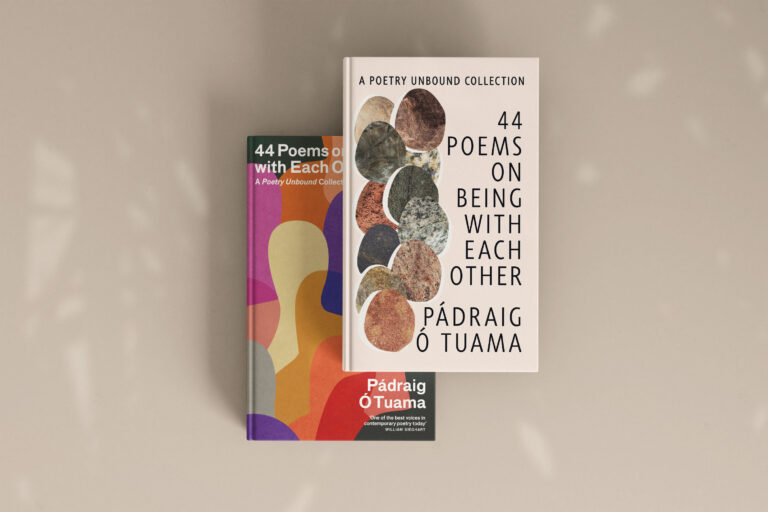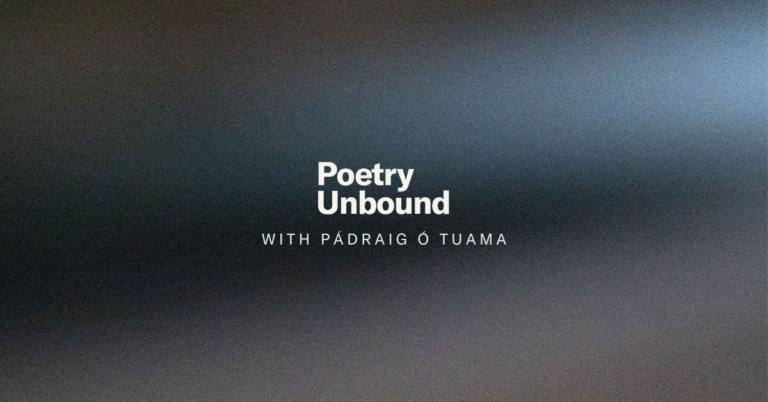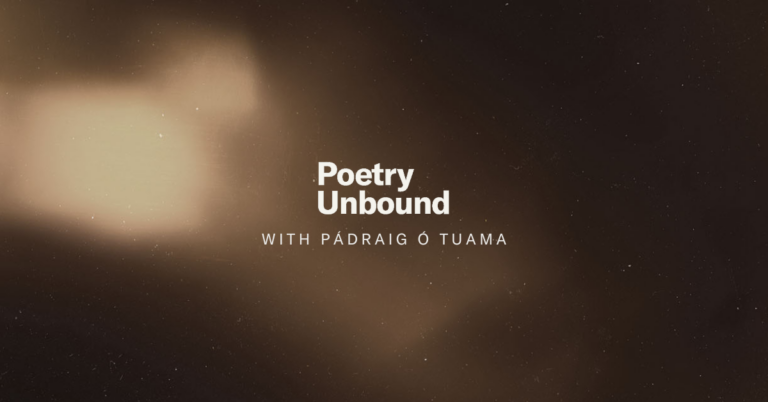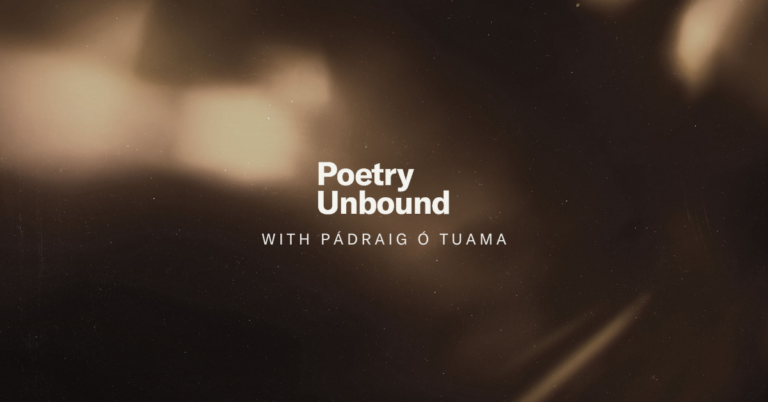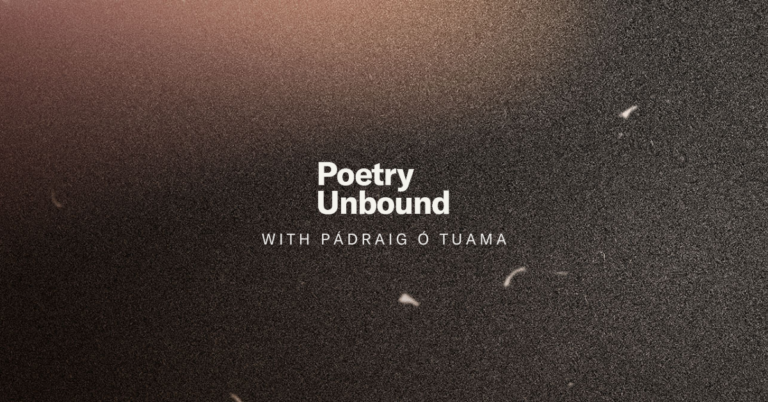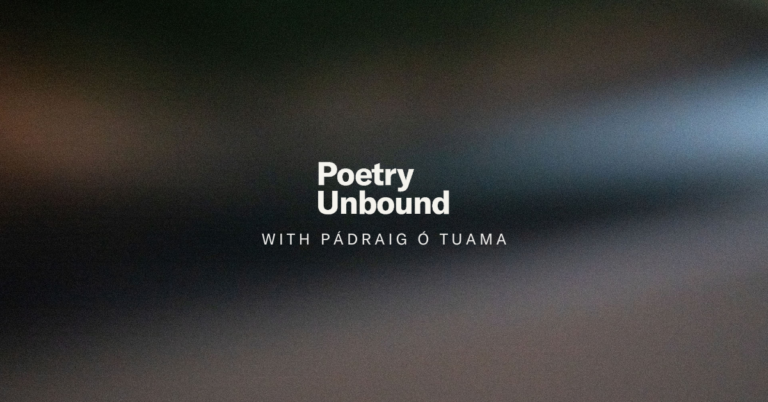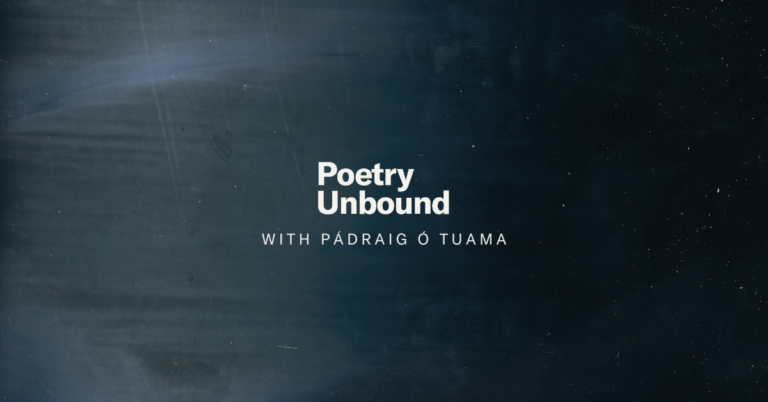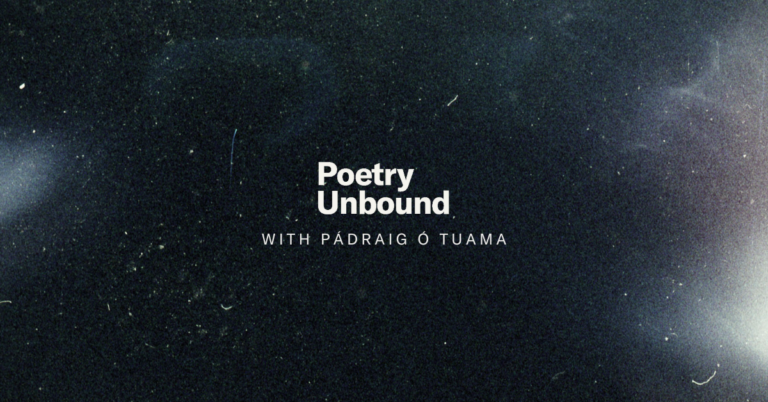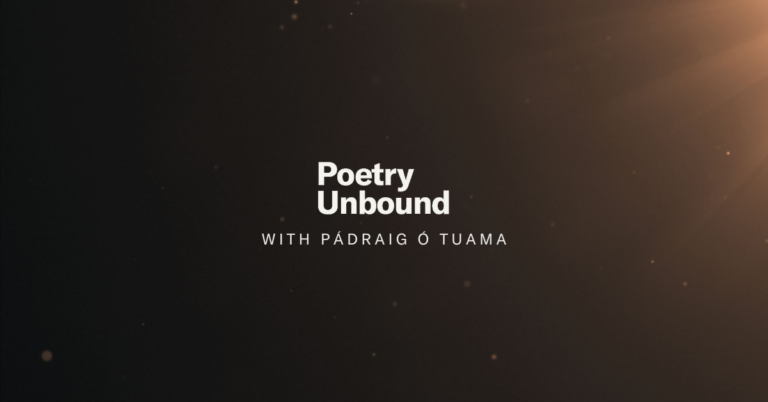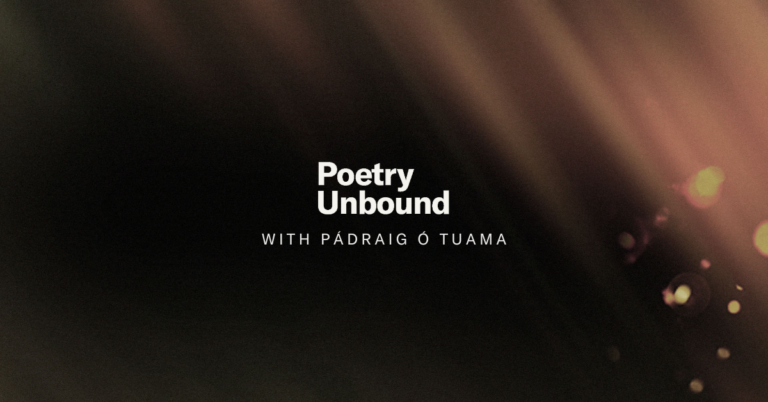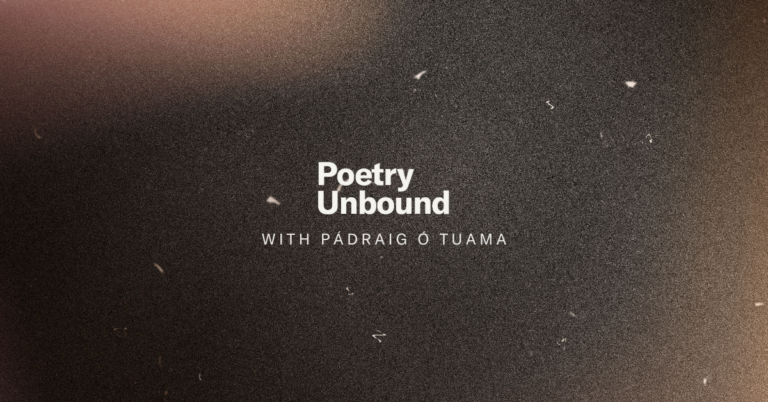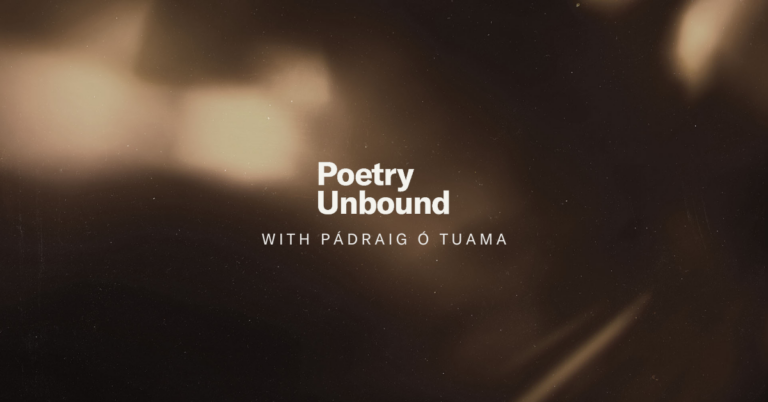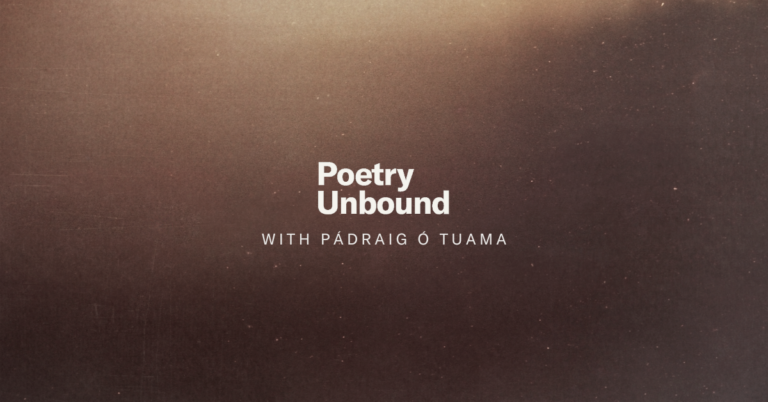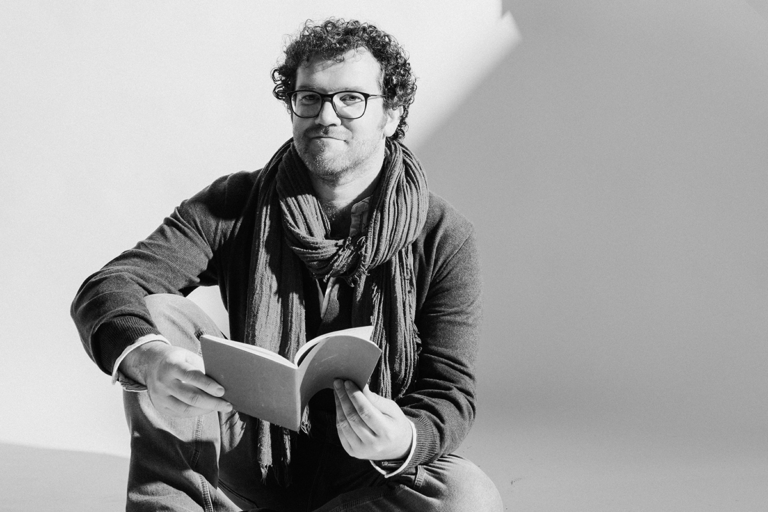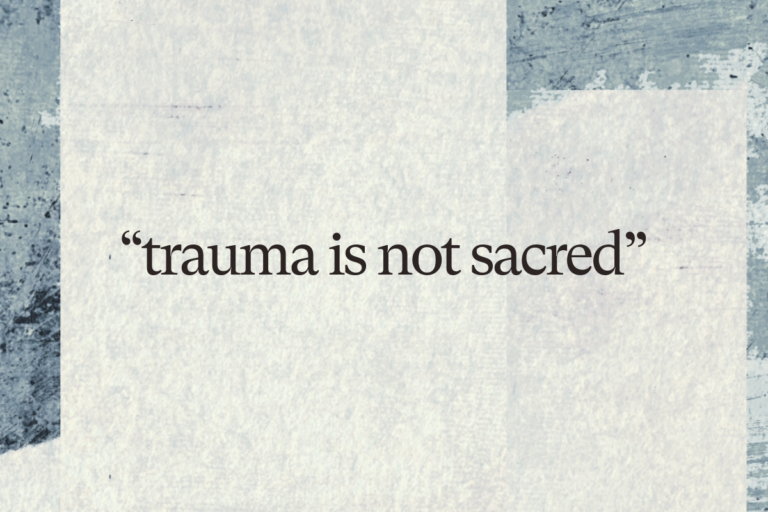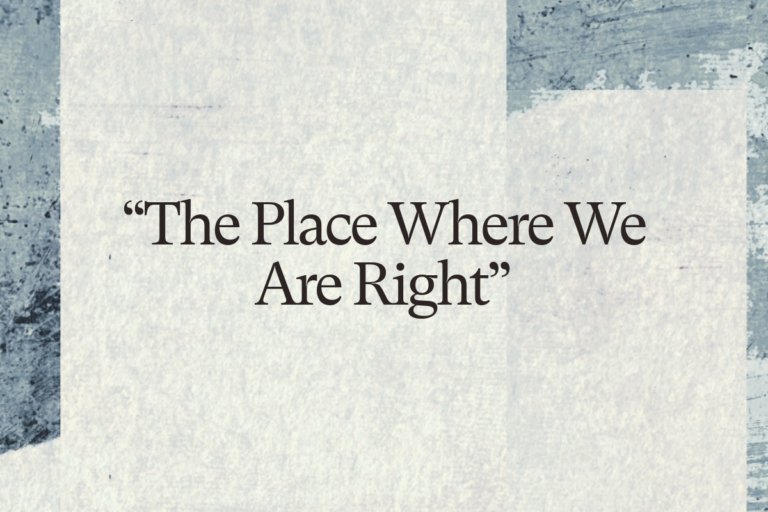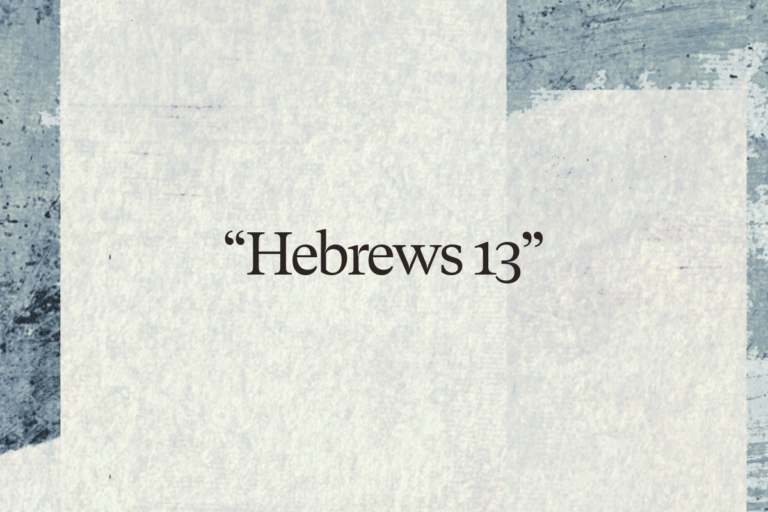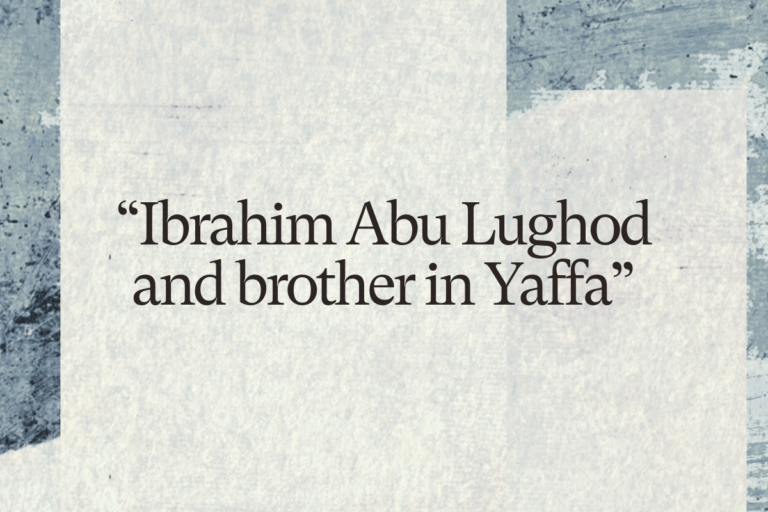44 Poems on Being with Each Other: A Poetry Unbound Collection
A new volume of poems and essays from Padráig that offers immersive reflections on the human connection. This book is for friends of Poetry Unbound, for lovers of poetry, and for those who want to love poetry. Be sure to also check out the first volume, Poetry Unbound: 50 Poems to Open Your World.
Every Sunday, a letter from Pádraig and a rich conversation with him and other readers in the comments.
Not ready to subscribe? Read Pádraig’s previous letters.
Not ready to subscribe? Read Pádraig’s previous letters.
View
- List View
- Standard View
- Grid View
194 Results
February 17, 2025
Benjamin Zephaniah
To Michael Menson
Benjamin Zephaniah’s urgent, imperative “To Michael Menson” was written when he was a poet in residence at a human rights barrister in England. His poem resonates with his repeated calls for justice for a murdered Black musician — not a justice that is gullible, impotent, or hopeless but one that is clear-eyed, collaborative, and mighty.
We’re pleased to offer Benjamin Zephaniah’s poem and invite you to subscribe to Pádraig’s weekly Poetry Unbound Substack newsletter, read the Poetry Unbound book, or listen to past episodes of the podcast. Order your copy of Kitchen Hymns (new poems from Pádraig) and 44 Poems on Being with Each Other (new essays by Pádraig) wherever you buy books.
February 10, 2025
Carmen Giménez
Ars Poetica
Carmen Giménez’s poem “Ars Poetica” is a stunning waterfall of words, a torrent of dozens of short statements that begin with “I” or “I’m.” As you listen to them, let an answering cascade of questions fill up your mind. What does this series of confessions reveal to you about poetry? The poet? And yourself?
We’re pleased to offer Carmen Giménez’s poem and invite you to subscribe to Pádraig’s weekly Poetry Unbound Substack newsletter, read the Poetry Unbound book, or listen to past episodes of the podcast. Order your copy of Kitchen Hymns (new poems from Pádraig) and 44 Poems on Being with Each Other (new essays by Pádraig) wherever you buy books.
February 3, 2025
Rick Barot
The Singing
Rick Barot’s poem “The Singing” takes place in the humdrum, relatable setting of the waiting room at a car dealership. But the unexpected occurs when one woman’s soft humming builds into strange, full-throated singing. Curiosity, wonder, anger, and dread spill over, forcing you to face the same dilemma as the narrator: What can you do when reality defies your control?
We’re pleased to offer Rick Barot’s poem and invite you to subscribe to Pádraig’s weekly Poetry Unbound Substack newsletter, read the Poetry Unbound book, or listen to past episodes of the podcast. We also have two books coming out in early 2025 — Kitchen Hymns (new poems from Pádraig) and 44 Poems on Being with Each Other (new essays by Pádraig). You can pre-order them wherever you buy books.
January 27, 2025
Diannely Antigua
Another Poem about God, but Really It’s about Me
“You would’ve made a lousy nun.” The narrator of Diannely Antigua’s “Another Poem about God, but Really It’s about Me” overhears these words, and they jolt her into contrasting her life experience with the limited archetypes offered by her church — good daughter, good sister, holy woman, whore. Which of these has she been? Where does her devotion lie? And what virtue can she claim?
We’re pleased to offer Diannely Antigua’s poem and invite you to subscribe to Pádraig’s weekly Poetry Unbound Substack newsletter, read the Poetry Unbound book, or listen to past episodes of the podcast. We also have two books coming out in early 2025 — Kitchen Hymns (new poems from Pádraig) and 44 Poems on Being with Each Other (new essays by Pádraig). You can pre-order them wherever you buy books.
January 20, 2025
Don McKay
Neanderthal Dig
Don McKay’s poem “Neanderthal Dig” begins with the discovery of an ancient, child-sized skeleton placed on the wing of a swan and then takes flight, showing us how love and death are riddled with paradoxes — mixing the earthbound and the sacred, the personal and the universal, the time-stamped and the never ending.
We’re pleased to offer Don McKay’s poem and invite you to subscribe to Pádraig’s weekly Poetry Unbound Substack newsletter, read the Poetry Unbound book, or listen to past episodes of the podcast. We also have two books coming out in early 2025 — Kitchen Hymns (new poems from Pádraig) and 44 Poems on Being with Each Other (new essays by Pádraig). You can pre-order them wherever you buy books.
January 13, 2025
Ernesto Cardenal
Give Ear to My Words (Psalm 5)
When dictatorial leaders use talk of peace as a smokescreen to conceal their plans for war and destruction, what are the people to do? Believe in a vision of peace and freedom that is muscular, sturdy, and protective — and pray that it holds, as Ernesto Cardenal does in his poem “Give Ear to My Words (Psalm 5),” translated by Jonathan Cohen.
We’re pleased to offer Jonathan Cohen’s translation of Ernesto Cardenal’s poem and invite you to subscribe to Pádraig’s weekly Poetry Unbound Substack newsletter, read the Poetry Unbound book, or listen to past episodes of the podcast. We also have two books coming out in early 2025 — Kitchen Hymns (new poems from Pádraig) and 44 Poems on Being with Each Other (new essays by Pádraig). You can pre-order them wherever you buy books.
December 20, 2024
Diego Báez
Inheritance
Many people say their experience of time changes after they have children, a phenomenon that Diego Báez captures in “Inheritance.” In this poem, a past, present, and future starring the same child shift ceaselessly in a parent’s mind, like photos flipped through in an album, dots placed on a timeline, moments that one wishes they could build monuments for.
We’re pleased to offer Diego Báez’s poem and invite you to subscribe to Pádraig’s weekly Poetry Unbound Substack newsletter, read the Poetry Unbound book, or listen to past episodes of the podcast. We also have two books coming out in early 2025 — Kitchen Hymns (new poems from Pádraig) and 44 Poems on Being with Each Other (new essays by Pádraig). You can pre-order them wherever you buy books.
December 16, 2024
Danielle Chapman
Trespassing with Tweens
Wonder and strangeness commingle with the commonplace and universal in Danielle Chapman’s “Trespassing with Tweens.” In a not-quite mirroring, a human mother and her children stand and watch together in awe as a great blue heron flaps in and feeds its two offspring. The pleasures found here are profound and multiple – the joys in seeing, in sharing an experience of seeing, in seeing with fresh eyes, and in being seen.
We’re pleased to offer Danielle Chapman’s poem and invite you to subscribe to Pádraig’s weekly Poetry Unbound Substack newsletter, read the Poetry Unbound book, or listen to past episodes of the podcast. We also have two books coming out in early 2025 — Kitchen Hymns (new poems from Pádraig) and 44 Poems on Being with Each Other (new essays by Pádraig). You can pre-order them wherever you buy books.
December 13, 2024
Richard Langston
Hill walk
In Richard Langston’s poem “Hill walk,” he proffers a handful of things that move us over the course of a day — words said or read, notes played, the sight of halting steps taken by a sibling. We marvel at the sound of an unfamiliar bird call, but there’s a startling mystery to the human heart and what it responds to (or doesn’t) and one that we don’t always mark.
We’re pleased to offer Richard Langston’s poem and invite you to subscribe to Pádraig’s weekly Poetry Unbound Substack newsletter, read the Poetry Unbound book, or listen to past episodes of the podcast. We also have two books coming out in early 2025 — Kitchen Hymns (new poems from Pádraig) and 44 Poems on Being with Each Other (new essays by Pádraig). You can pre-order them wherever you buy books.
December 9, 2024
Robert Hayden
Those Winter Sundays
What sacrifices were made by your parents when you were a child? How did you think about them as they were happening? And how do you think about them now? In his poem “Those Winter Sundays,” Robert Hayden holds space for a weighted childhood memory and the regret, love, and pain it evokes.
We’re pleased to offer Robert Hayden’s poem and invite you to subscribe to Pádraig’s weekly Poetry Unbound Substack newsletter, read the Poetry Unbound book, or listen to past episodes of the podcast. We also have two books coming out in early 2025 — Kitchen Hymns (new poems from Pádraig) and 44 Poems on Being with Each Other (new essays by Pádraig). You can pre-order them wherever you buy books.
December 6, 2024
Taylor Johnson
Pennsylvania Ave. SE
When you look at people who are younger than you — particularly teenagers — does your mind ever take you back to yourself at their age? Taylor Johnson’s poem “Pennsylvania Ave. SE” performs this feat of time travel, going from a glimpse of two boys on bicycles to a haunting sense memory of what was once so yearned for: to be seen, to be wanted, to be free.
We’re pleased to offer Taylor Johnson’s poem and invite you to subscribe to Pádraig’s weekly Poetry Unbound Substack, read the Poetry Unbound book, or listen to past episodes of the podcast. We also have two books coming out in early 2025 — Kitchen Hymns (new poems from Pádraig) and 44 Poems on Being with Each Other (new essays by Pádraig). You can pre-order them wherever you buy books.
December 2, 2024
Kinsale Drake
Put on that KTNN
In Kinsale Drake’s poem “Put on that KTNN,” she writes about driving to a hometown as a familiar station crackles to life on the car radio. From this corner of America, she creates her own country music — of Navajo voices alongside Johnny Cash and Loretta Lynn, of drumbeats and guitar licks, of things wrought by nature and things made by humans, all of them rooted in the desert sand.
We’re pleased to offer Kinsale Drake’s poem and invite you to read Pádraig’s weekly Poetry Unbound Substack, read the Poetry Unbound book, or listen back to all our episodes.
November 25, 2024
Poetry Unbound — Season 9 Trailer
Poetry Unbound with host Pádraig Ó Tuama is back on Monday, December 2. Featured poets in this season include Robert Hayden, Kinsale Drake, Danielle Chapman, Diannely Antigua, and many more. New episodes every week through March 3.
Follow us on Apple Podcasts, Spotify, Pocket Casts, Overcast, or wherever you listen.
In this concluding episode of “Poems as Teachers,” our special miniseries on conflict and the human condition, host Pádraig Ó Tuama says the poems discussed in this offering are a different kind of teacher: “not as teachers that give us rules to follow — more so teachers that share something of their own intuition.” And for a final reflection, he offers Kai Cheng Thom’s “trauma is not sacred,” which speaks directly, fiercely, and lovingly to the pain, scars, and violence that we humans carry and inflict upon one another.
This is the final episode of “Poems as Teachers,” a special seven-part miniseries on conflict and the human condition.
We’re pleased to offer Kai’s poem, and invite you to read Pádraig’s weekly Poetry Unbound Substack, read the Poetry Unbound book, or listen back to all our episodes.
May 17, 2024
Yehuda Amichai
Poems as Teachers | Episode 6
Being right may feel good, but what human price do we pay for this feeling of rightness? Yehuda Amichai’s poem “The Place Where We Are Right,” translated by Stephen Mitchell, asks us to answer this question, consider how doubt and love might expand and enrich our perspective, and reflect upon the buried and not-so-buried ruins of past conflicts, arguments, and wounds that still call for our attention.
This is the sixth episode of “Poems as Teachers,” a special seven-part miniseries on conflict and the human condition.
We’re pleased to offer Yehuda’s poem, and invite you to read Pádraig’s weekly Poetry Unbound Substack, read the Poetry Unbound book, or listen back to all our episodes.
May 16, 2024
Jericho Brown
Poems as Teachers | Episode 5
In “Hebrews 13” by Jericho Brown, a narrator says: “my lover and my brother both knocked at my door.” The heat is turned on, scalding coffee is offered and hastily swallowed, and silence is the soundtrack. What an exquisitely awkward triangle it is, and what a human, beautiful, and loving shape that can be.
This is the fifth episode of “Poems as Teachers,” a special seven-part miniseries on conflict and the human condition.
We’re pleased to offer Jericho Brown’s poem, and invite you to read Pádraig’s weekly Poetry Unbound Substack, read the Poetry Unbound book, or listen back to all our episodes.
May 15, 2024
Mosab Abu Toha
Poems as Teachers | Episode 4
In Mosab Abu Toha’s “Ibrahim Abu Lughod and brother in Yaffa,” two barefoot siblings on a beach sketch out a map of their former home in the sand and argue about what went where. Their longing for return to a place of hospitality, family, memory, friends, and even strangers is alive and tender to the touch.
This is the fourth episode of “Poems as Teachers,” a special seven-part miniseries on conflict and the human condition.
We’re pleased to offer Mosab Abu Toha’s poem, and invite you to read Pádraig’s weekly Poetry Unbound Substack, read the Poetry Unbound book, or listen back to all our episodes.
May 14, 2024
Constantine P. Cavafy
Poems as Teachers | Episode 3
We ask questions to find out the facts, but what if you can’t trust the answers, the questions, or the person who’s asking the questions? In Constantine P. Cavafy’s “Waiting for the Barbarians,” translated by Evan Jones, leaders exercise a sinister kind of violence — they’ve taken over people’s imaginations with showy displays of wealth and privilege, time-wasting ceremony, and fear coursing beneath it all.
This is the third episode of “Poems as Teachers,” a special seven-part miniseries on conflict and the human condition.
We’re pleased to offer Constantine P. Cavafy’s poem, and invite you to read Pádraig’s weekly Poetry Unbound Substack, read the Poetry Unbound book, or listen back to all our episodes.
The Pause
Join our constellation of listening and living.
The Pause is a monthly Saturday morning companion to all things On Being, with heads-up on new episodes, special offerings, event invitations, recommendations, and reflections from Krista all year round.
Search results for “”
View
- List View
- Standard View
- Grid View
Filters
/





